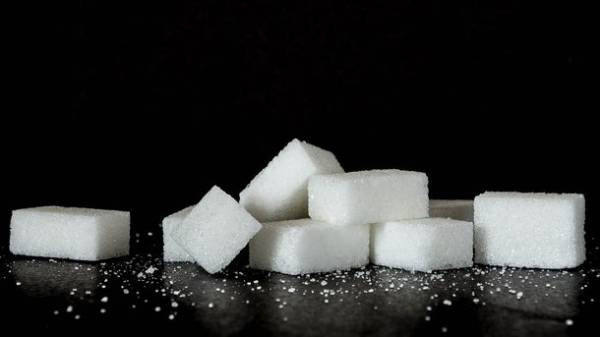
Every day more and more people refrain from eating sweets or sugar in its purest form. The reasons are different – from the desire to follow the figure to trying to improve their health, writes “24 channel”.
Here the best products that replace sugar:
- Fructose
Until recently, it was called fructose healthy sugar substitute. This monosaccharide does not require for the absorption of insulin, and therefore suitable for people suffering from diabetes. With the same calorie content of sugar, fructose is sweeter: that is in the tea you need to put the usual two scoops, and only one.
SEE ALSO
- What foods have a negative impact on male potency
But do not forget that fructose can cause such disease as obesity. This simple carbohydrate, heading directly to the cells, passes the stages of splitting, and eventually transformered into fat. Besides, fructose adversely affects the satiety hormone – leptin. The brain is just not getting the signal that you have had enough.
Conclusion: healthy humans fructose in its pure form for anything. Its consumption can only be justified in relation to diabetics, athletes during heavy loads and those who suffer from underweight.
- Xylitol and sorbitol
These natural sweeteners are not carbohydrates, and belong to the group of alcohols. They slowly penetrate into the cells of the body (unlike fructose) and does not provoke rapid insulin spike. Caloric content – they are not inferior to the Sahara. Should comply with the daily requirement of 30 grams, otherwise you can provoke disorder of the gastrointestinal tract.
Conclusion: a safe alternative to sugar, if consumed in a fixed volume, suitable for diabetics.
- Artificial sweeteners
Aspartame, cyclamate, Acesulfame, saccharin, Sucralose – the most popular artificial sweeteners. First sweet pills and tablets meant for diabetes patients, but advocates a healthy lifestyle quickly realized their main advantage – the lack of carbohydrates.
However, synthetic sweeteners kindle the appetite for sweets. Experiments in laboratories have shown that the chemical created by sugar is poorly excreted from the body, disrupts metabolic processes and does not protect from diabetes.
Conclusion: pharmaceutical sweeteners with zero calories cannot be called a dietary product.
- Honey
Almost 80% of honey consists of sugar, and the rest is water and trace elements (maximum 1.6%). The daily rate of honey – 2-3 tablespoons a day. But honey could not provide the body with all necessary nutrients. Uncontrolled consumption of honey, like chocolate, spoils the waist and tooth enamel.
Conclusion: honey is quite healthy alternative to white sugar, but feast on this nutritious product should moderate. Allowed consumption by people with diabetes.
- Stevia
This is a unique plant, which is also called honey herb. Available in the form of powders, compressed tablets or syrups. It is added to cakes, yoghurt, pickles, jams. Stevia is non-caloric and does not harm tooth enamel.
Besides honey grass suppresses the appetite and cravings for sweets, helps to eliminate toxins.
Conclusion: many nutritionists believe that stevia is the future. She practically has no contraindications and is allowed in the diet of diabetics and overweight people.







